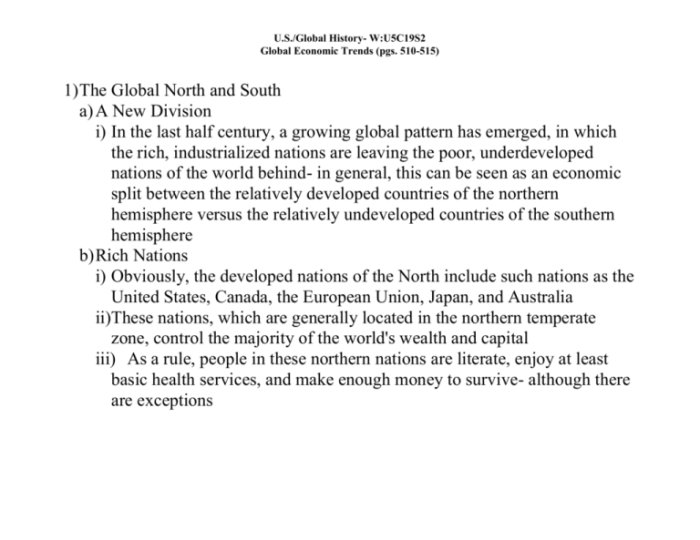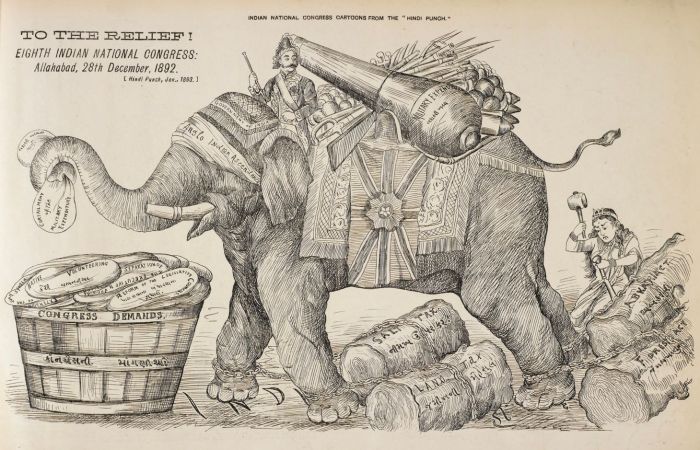Dbq 15 new imperialism causes – Step into the captivating world of DBQ 15: New Imperialism Causes, where we embark on an exploration of the complex factors that drove the expansion of European powers into distant lands. From economic necessities to ideological justifications, this journey promises a rich tapestry of insights and a fresh perspective on a pivotal chapter in global history.
Industrialization, technological advancements, and the thirst for resources ignited the economic fires of new imperialism. Political rivalries and the allure of national glory fueled competition among European nations, while social factors such as population growth and the belief in European superiority shaped imperial ambitions.
Economic Causes of New Imperialism

The late 19th century witnessed a surge in industrialization, leading to a pressing need for new markets and resources. This economic drive became a significant catalyst for the wave of New Imperialism.
Impact of Industrialization
Industrialization created a vast surplus of manufactured goods, necessitating new markets to absorb this excess production. Imperial expansion offered a solution, providing access to vast colonies with populations eager to consume European products.
Furthermore, industrialization demanded raw materials to fuel its factories. Colonies became indispensable sources of essential resources such as rubber, cotton, and minerals, ensuring a steady supply for European industries.
Understanding the causes of DBQ 15 New Imperialism can be enhanced by exploring historical documents such as the Book of Common Prayer . This religious text provides insights into the motivations and beliefs that drove European powers to embark on imperial expansion, offering valuable context for analyzing the causes of DBQ 15.
Technological Advancements
Technological advancements played a crucial role in facilitating imperial expansion. Advancements in transportation, such as steamships and railroads, enabled the efficient transport of goods and troops to and from colonies.
Improvements in communication, including the telegraph and telephone, allowed imperial powers to maintain effective control over their vast territories. This technological edge gave European nations a decisive advantage in establishing and maintaining their colonial empires.
Benefiting Industries
Numerous industries benefited directly from imperial expansion. The textile industry, for instance, relied heavily on raw cotton from colonies in Africa and Asia. The rubber industry found indispensable sources of rubber in Southeast Asia, while the mining industry exploited mineral resources in colonies across the globe.
Political Causes of New Imperialism
Imperial expansion was driven by a range of political factors, including nationalism and competition between European powers.
Nationalism
Nationalism, a surge of patriotic sentiment, played a significant role in imperial expansion. European nations sought to assert their superiority and expand their influence abroad. Imperialism was seen as a way to demonstrate national strength and prestige.
Competition between European Powers
European powers competed fiercely for control of resources, markets, and strategic territories. This competition fueled imperial expansion as nations sought to secure their economic and political interests.
Diplomatic Crises and Conflicts
Diplomatic crises and conflicts often led to imperial acquisitions. For example, the Fashoda Incident in 1898, where France and Britain clashed over control of Sudan, resulted in France recognizing British control over Egypt.
Social Causes of New Imperialism: Dbq 15 New Imperialism Causes
Social factors played a significant role in driving the expansionist ambitions of European powers. Population growth, urbanization, and the prevailing ideologies of the time all contributed to the rise of new imperialism.
Population Growth and Urbanization
Rapid population growth in Europe during the 19th century put pressure on resources and land. The Industrial Revolution led to urbanization, creating crowded and unsanitary conditions in cities. This fueled a desire for new territories to accommodate the growing population and provide raw materials for industries.
Social Darwinism and European Superiority
Social Darwinism, a theory based on the principles of natural selection, gained popularity during this period. It held that the fittest and most advanced societies were destined to dominate the weaker ones. This ideology justified imperial expansion as a natural process of progress and survival.
Cultural and Social Factors
Imperial powers used cultural and social factors to legitimize their expansion. They portrayed themselves as civilizing missions, bringing the benefits of European culture and technology to “backward” regions. This allowed them to establish control over foreign territories and exploit their resources.
Ideological Causes of New Imperialism
Ideological factors played a significant role in driving the expansionist ambitions of European powers during the era of New Imperialism. These ideologies justified imperial expansion and legitimized the actions of colonizing powers.
The White Man’s Burden
The concept of “the White Man’s Burden” was a prevailing belief that it was the moral responsibility of civilized Western nations to “civilize” and uplift “inferior” races. This ideology was rooted in the belief that Western civilization was superior and that it had a duty to spread its values and institutions to the rest of the world.
The White Man’s Burden served as a justification for imperial expansion, as European powers claimed to be acting in the best interests of the colonized peoples.
Christian Missionaries
Christian missionaries played a significant role in the expansion of European empires. They established missions in various parts of the world, spreading their religious beliefs and values. Missionaries often became advocates for imperial expansion, arguing that it was necessary to protect and support their efforts to spread Christianity.
They also provided valuable intelligence and support to imperial powers, helping to establish a foothold in new territories.
Ideological Justifications for Imperialism
Imperial powers used various ideological justifications to legitimize their actions. These included:
The spread of civilization
European powers claimed that they were bringing the benefits of Western civilization to “backward” regions.
The protection of Christian values
Imperial expansion was often justified as a way to protect Christian communities from perceived threats.
The establishment of order and stability
European powers argued that they were bringing order and stability to chaotic and unstable regions.
The promotion of economic development
Imperial expansion was also seen as a way to promote economic development in colonized territories.These ideological justifications provided a veneer of legitimacy to the actions of imperial powers, helping to justify their expansionist ambitions and to quell any objections from their own citizens or from the international community.
Imperialism and Indigenous Peoples

Imperialism had a profound impact on indigenous populations in Africa, Asia, and the Americas. Imperial powers used various methods to control and exploit these populations, leading to significant social, economic, and political changes.
Methods of Control and Exploitation
Imperial powers employed a range of strategies to control and exploit indigenous peoples, including:
- Military conquest: Imperial powers often used military force to subdue indigenous populations and establish control over their territories.
- Political domination: Imperial powers imposed their own political systems on indigenous societies, often replacing traditional leaders with appointed officials.
- Economic exploitation: Imperial powers exploited indigenous labor and resources, often forcing them to work in mines, plantations, or other industries.
- Cultural assimilation: Imperial powers attempted to assimilate indigenous peoples into their own cultures, suppressing their languages, religions, and traditions.
Resistance Movements
Despite the oppressive measures imposed by imperial powers, indigenous peoples resisted in various ways. These resistance movements took many forms, including:
- Armed uprisings: Indigenous populations sometimes engaged in armed resistance against imperial rule, such as the Zulu Wars in South Africa and the Boxer Rebellion in China.
- Passive resistance: Indigenous peoples also employed nonviolent forms of resistance, such as boycotts, strikes, and civil disobedience.
- Cultural preservation: Indigenous peoples preserved their cultural identities by maintaining their languages, traditions, and religious practices.
Resistance movements had a significant impact on imperial policies. They forced imperial powers to recognize the rights and interests of indigenous peoples and led to reforms in colonial policies.
Imperialism and Global Conflict

Imperialism played a significant role in the outbreak and course of World War I. The European powers’ quest for colonies and resources led to intense rivalries and tensions.
Imperial Rivalries and the Outbreak of WWI, Dbq 15 new imperialism causes
Imperial competition escalated in the late 19th century, with major powers seeking to expand their empires in Africa, Asia, and the Pacific. Germany’s rapid industrialization and military buildup challenged the dominance of Britain and France. This rivalry created a volatile atmosphere in Europe, where any spark could ignite a conflict.
Imperialism and the Course of the War
Imperial possessions became strategic assets during WWI. Colonies provided manpower, raw materials, and markets for the warring nations. The British Empire, with its vast network of colonies, was particularly well-positioned to sustain the long and costly conflict. Imperial rivalries also shaped the war’s alliances and battlefronts.
For example, Germany’s attempt to establish a colonial empire in Africa and Asia brought it into conflict with Britain and France.
Imperialism and the Rise of Nationalism
Imperialism fostered a sense of nationalism among colonized peoples. The imposition of foreign rule and the exploitation of resources led to resentment and resistance. Nationalist movements emerged in many colonies, seeking independence and self-determination. These movements gained momentum during and after WWI, contributing to the eventual decline of European empires.
The Legacy of Imperialism
Imperialism has left an enduring mark on the world, shaping the political, economic, and social landscapes of former colonies. Its impact continues to reverberate in contemporary global dynamics.Imperialism played a pivotal role in shaping global power structures. European powers carved out vast empires, exploiting resources and exerting control over vast territories.
This led to the emergence of a global hierarchy, with imperial powers at the apex and colonies at the bottom. The legacy of this hierarchy continues to influence international relations, as former colonies grapple with the consequences of their colonial past.
Ongoing Debates and Controversies
The legacy of imperialism remains a subject of ongoing debate and controversy. Former colonies grapple with the economic and social inequalities created by colonial rule. They also face the challenge of reconciling their colonial past with their present-day identities.One of the most contentious issues related to the legacy of imperialism is the question of reparations.
Some argue that former imperial powers should compensate their former colonies for the exploitation and oppression they endured. Others maintain that reparations are impractical or impossible to implement.Another area of debate is the role of imperialism in shaping cultural and linguistic diversity.
While imperialism often led to the suppression of local languages and cultures, it also facilitated the spread of new ideas and technologies. The legacy of this complex relationship is still felt today, as former colonies negotiate their place in a globalized world.
Query Resolution
What were the primary economic drivers of new imperialism?
Industrialization and technological advancements created a demand for new markets, resources, and investment opportunities.
How did nationalism contribute to the rise of imperialism?
Nationalism fostered a sense of national pride and competition, leading European powers to seek glory and expand their empires.
What role did social Darwinism play in justifying imperialism?
Social Darwinism, which promoted the idea of survival of the fittest, was used to justify European superiority and the domination of non-Western peoples.